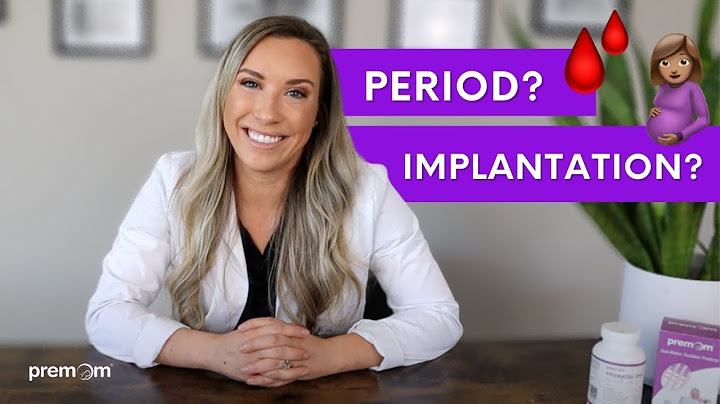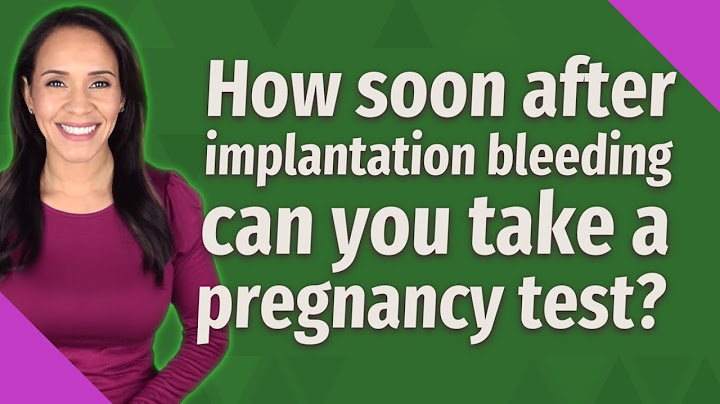how long does it take for a girl to get pregnant after having sex? Show  Pregnancy doesn’t start the day you have sex — It actually takes up to 2-3 weeks after sex to become officially pregnant. It can take up to 6 days after sex for the sperm and egg to join — if a sperm cell joins with an egg, it's called fertilization. The fertilized egg moves towards your uterus. It gets to your uterus about 3-4 days after fertilization, and it can float around in your uterus for another few days. Pregnancy officially begins during implantation — when the fertilized egg attaches to the lining of your uterus, and the hormones needed to support pregnancy are released. It can take 3-4 days for the fertilized egg to completely implant itself in the lining of the uterus. The most common way people get pregnant is from penis-in-vagina sex. But if semen (cum) gets ON the vulva or near the vaginal opening, sperm cells can swim into the vagina and cause pregnancy — but this is way less common. The only way to be sure of a pregnancy is to take a pregnancy test. You can purchase a home pregnancy test at drugstores or you can go to your local Planned Parenthood health center. And if you’ve unprotected sex within the last 5 days and you don’t want to get pregnant, you may want to consider emergency contraception, like the morning-after pill. There are a few different kinds of emergency contraception. The best kind for you depends on a few factors — when you had sex, how much you weigh, whether you’re breastfeeding, and what kind is easiest for you to get. But no matter which kind, EC works better the sooner you take it. You can get emergency contraception from your local drugstore, for free or low cost from your local Planned Parenthood health center, and online. It’s totally safe to take the morning-after pill as many times as you need to — it’s just not the best way to prevent unintended pregnancies long-term. Birth control that you use before or during sex (like the IUD, implant, pill, condoms, etc.) is way more effective, affordable and convenient. Learn more about EC and birth control options on our website, chat online, or text "PPNOW" to 774636 (PPINFO). Tags: pregnancy, emergency contraception The amount of time that it takes to get pregnant after sex depends on the situation. Conception can happen in hours to days, and implantation usually happens about a week later. No single type of sexual intercourse guarantees pregnancy, even if the partners are fertile, healthy, and do not use contraception. “Sex” means different things to different people and in different circumstances. For the purposes of this article, we use this term to refer to sexual intercourse that involves ejaculation into the vagina. Below, we describe the factors that affect how long it takes to get pregnant after sex. We also look at when to take a pregnancy test, early signs of pregnancy, whether anything increases the odds of conceiving, and when emergency contraception is effective. Very little research has investigated whether specific sexual acts influence the chances of pregnancy. An older study, from 2000, meanwhile, set out to assess the likelihood of conceiving among young couples who had sex without contraceptives throughout the menstrual cycle. The researchers found that the couples had roughly a 1 in 20 chance of conceiving when they did not deliberately time their intercourse for optimal fertility. According to the American Society for Reproductive Medicine, a healthy 30-year-old woman has a 20% chance of getting pregnant each month that she has sex during her fertile period — just before or during ovulation. By age 40, the society estimate, the likelihood of conceiving in this way drops to 5%. While fertility varies widely from person to person, it does decline with age. Fertilization can only occur if a viable egg and sperm meet. The time it takes depends on whether the person has ovulated yet and how quickly the sperm reach the egg. Sperm can live in the female reproductive tract for about 5 days, so pregnancy after sex may take place up to 1 week before ovulation. An egg lives for 12–24 hours after ovulation. This means that fertilization can occur if intercourse happens anywhere from several days before ovulation to about 1 day after ovulation. After a sperm fertilizes an egg, the egg begins dividing rapidly. It travels down the fallopian tube and into the uterus, where it must implant in the wall of the uterus. In natural cycles, those that do not involve reproductive technology, about half of all fertilized eggs do not implant. In these cases, fertilization does not lead to pregnancy. The body begins producing more of a hormone called human chorionic gonadotropin (HCG) after a fertilized egg implants in the lining of the uterus. This typically happens 6–12 days after ovulation. Implantation cannot happen immediately after fertilization because it takes time for the fertilized egg to reach the uterus. Older research, from 1999, suggests that the later a fertilized egg implants, the more likely early pregnancy loss becomes. The study found that implantation occurred on days 8–10 after ovulation for 84% of participants. Of the eggs that implanted after day 11, 82% resulted in pregnancy loss before 6 weeks. Pregnancy tests check levels of the hormone HCG. They cannot produce a positive result until two things have happened:
This means that most people cannot have a positive pregnancy test result until at least 10 days after ovulation. For some, a positive result is only possible on the day of their anticipated period or a bit later. More sensitive tests are more likely to give early false-negative results. If a person takes the test again a few days later, HCG levels may have risen high enough for a positive result. Learn more about how and when to take a pregnancy test here. Some people experience no changes early in pregnancy, while others notice differences right away. A person may experience the following early changes:
It is worth keeping in mind, however, these are also common experiences in people who are not pregnant. The most accurate way to check for pregnancy is to take a pregnancy test. Learn more about early signs of pregnancy here. Folk myths about ways to improve the odds of pregnancy abound. Some say that taking certain remedies or lying down after sex increases the chances of getting pregnant. No scientific evidence supports these or similar claims. A 2017 systematic review and meta-analysis assessed whether lying down after intrauterine insemination (IUI) increased the likelihood of getting pregnant. IUI is a procedure that involves inserting sperm into the vagina. The researchers found no evidence that lying down improved the chances of getting pregnant after IUI. Anyone who wants to enhance their fertility should speak with a healthcare provider. The Centers for Disease Control and Prevention (CDC) encourage all people who are trying to get pregnant to take at least 400 micrograms of folic acid per day. This is not to improve the likelihood of pregnancy — the aim is to reduce the risk of neural tube abnormalities in the fetus, should pregnancy occur. Emergency contraception, sometimes called Plan B or the morning-after pill, uses hormones to prevent ovulation. If ovulation does occur, Plan B reduces the likelihood of successful implantation. Plan B does not cause an abortion — it does not induce pregnancy loss in a person who is already pregnant. The earlier a person takes emergency contraception, the more effective it is. It works best when a person takes it within 12 hours of unprotected sex, but it can work for up to 72 hours after sex. There is a relatively wide time frame during which fertilization is possible, and a number of factors influence this. People can identify their fertile windows using home fertility tests and other monitoring strategies. A doctor can advise about additional ways to prevent pregnancy or boost fertility. Can implantation occur 1 day after intercourse?Conception (when the egg is fertilized by the sperm) can take place as soon as three minutes after sex or it may take up to five days. Implantation (when the fertilized egg attaches to the uterine wall) occurs five to 10 days after fertilization—which means it can happen anywhere from five to 15 days after you had sex.
Can implantation bleeding happen 4 days after intercourse?Some women may notice symptoms as early as 5 DPO, although they won't know for certain that they are pregnant until much later. Early signs and symptoms include implantation bleeding or cramps, which can occur 5–6 days after the sperm fertilizes the egg. Other early symptoms include breast tenderness and mood changes.
Can implantation happen after 3 days?Implantation takes place anywhere between 6 and 12 days after you ovulate. It most commonly occurs 8 to 9 days after conception.
Can implantation bleeding occur immediately after conception?Implantation bleeding is defined as a small amount of light spotting or bleeding. It typically occurs about 10 to 14 days after conception. Implantation bleeding is common, and it usually isn't a sign of a problem. Implantation bleeding is thought to happen when the fertilized egg attaches to the lining of the uterus.
|

Related Posts
Advertising
LATEST NEWS
Advertising
Populer
Advertising
About

Copyright © 2024 en.idkuu.com Inc.

















